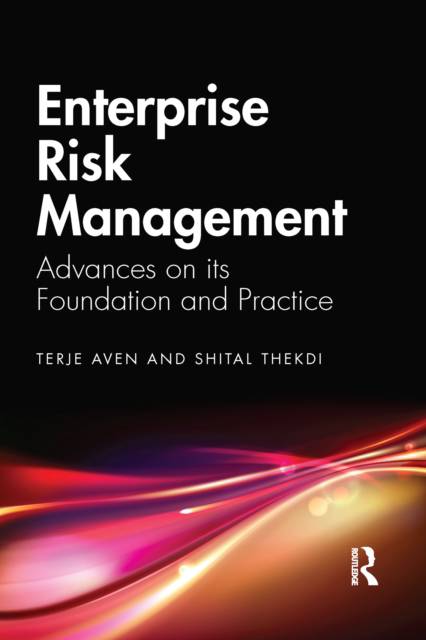
- Retrait gratuit dans votre magasin Club
- 7.000.000 titres dans notre catalogue
- Payer en toute sécurité
- Toujours un magasin près de chez vous
- Retrait gratuit dans votre magasin Club
- 7.000.0000 titres dans notre catalogue
- Payer en toute sécurité
- Toujours un magasin près de chez vous
Enterprise Risk Management
Advances on Its Foundation and Practice
Terje Aven, Shital ThekdiDescription
Enterprise Risk Management: Advances on its Foundation and Practice relates the fundamental enterprise risk management (ERM) concepts and current generic risk assessment and management principles that have been influential in redefining the risk field over the last decade. It defines ERM with a particular focus on understanding the nexus between risk, uncertainty, knowledge and performance.
The book argues that there is critical need for ERM concepts, principles and methods to adapt to the latest and most influential risk management developments, as there are several issues with outdated ERM theories and practices; problems include the inability to effectively and systematically balance both opportunity and downside performance, or relying too much on narrow probability-based perspectives for risk assessment and decision-making. It expands traditional loss-based risk principles into new and innovative performance-risk frameworks, and presents fundamental risk principles that have recently been developed by the Society for Risk Analysis (SRA). All relevant statistical and risk concepts are clearly explained and interpreted using minimal mathematical notation. The focus of the book is centered around ideas and principles, more than technicalities.
The book is primarily intended for risk professionals, researchers and graduate students in the fields of engineering and business, and should also be of interest to executive managers and policy makers with some background in quantitative methods such as statistics.
Spécifications
Parties prenantes
- Auteur(s) :
- Editeur:
Contenu
- Nombre de pages :
- 212
- Langue:
- Anglais
Caractéristiques
- EAN:
- 9781032082691
- Date de parution :
- 02-08-21
- Format:
- Livre broché
- Format numérique:
- Trade paperback (VS)
- Dimensions :
- 156 mm x 234 mm
- Poids :
- 303 g

Les avis
Nous publions uniquement les avis qui respectent les conditions requises. Consultez nos conditions pour les avis.






